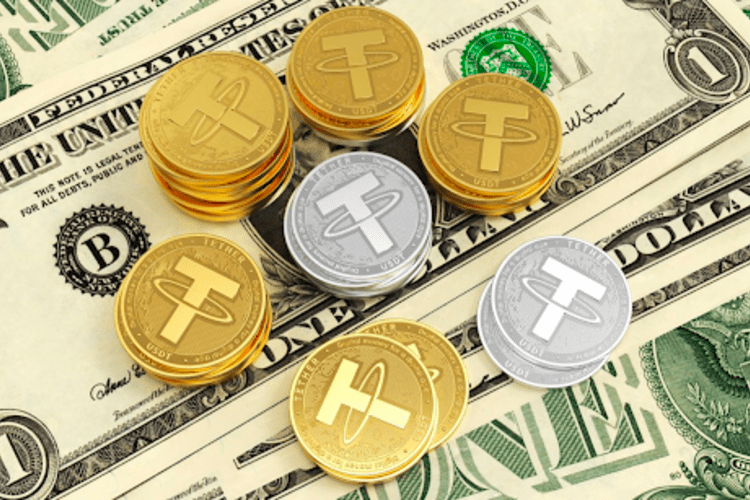Shorting Tether Reignites Debates Over Stablecoins

Shorting Tether has been resurrected by conventional hedge funds, highlighting how tough it is to bet against the stablecoin that underpins most of the trade in the cryptocurrency industry.
It's not only Tether's $80 billion market worth that's a danger, but the wide range of crypto market transactions that Tether facilitates. Bloomberg News, citing people familiar with the subject, revealed last week that Fir Tree Capital Management is placing a significant short bet on Tether, believing that it would pay off within a year.
There are two primary approaches for institutional investors to enter a transaction. You may use other assets like Bitcoin and dollars as collateral to borrow Tether from a market maker. A derivative product is another option open to hedge funds.
Since its inception, Tether has been the subject of rumors alleging that it is not backed one-to-one by U.S. dollars or their equivalents. The shorting of Tether, too many conventional banking institutions like Fir Tree, seems like a straightforward move. A request for feedback from Fir Tree went unanswered for a little time. It should also be mentioned that Tether is frequently used for sports betting, which allows gamblers to get the most out of the betting process. As the number of people who are interested in tether group betting increases, more and more bookmakers started to offer their clients bonuses, in order to allure new clients. Tether, the second-most traded cryptocurrency behind Bitcoin, has weathered multiple storms, including a roughly $43 million fine from the Commodity Futures Trading Commission and a settlement with the city of New York.
Contrary Views
Market players on both sides of the deal have differing viewpoints, which are typically influenced by their history and region. According to BKCoin Capital's founding partner Kevin Kang, the crypto hedge fund previously sought to short Tether but couldn't locate a suitable counterparty. There has been a shift in the crypto market since a few years ago, as shown by Fir Tree's latest bet.
What has changed, according to Kang, is the sort of companies entering the market. A few multibillion-dollar managers used to bring on $100 million transactions, but today it's commonplace. Because Tether will never raise over $1, shorting it provides conventional corporations with an asymmetric trade that limits their downside risk, Kang said. "However, if the peg is broken, the upside is limitless."
Tether shorting, according to Jeff Dorman, CEO of crypto investing company Arca, has been around for at least four years, and traders have been looking into it ever since. Digital and non-digital asset companies have all tried and failed at one time or another, according to Dorman.
According to crypto native funds, it is very difficult to generate money in the market due to its structure. Due to a lack of conventional banking options, many crypto traders rely on Tether as an on-ramp to the risky crypto market. It became more popular in China after the original 2017 restriction on the purchase of cryptos using fiat currency.
Cryptocurrency trading analytics provider Kaiko has shown that Tether's price has been more erratic in 2022, although it has generally traded at a premium rather than a discount to one dollar.
There is a "very high probability" of Tether trading at a premium during volatile periods, according to Clara Medalie, chief research officer of Kaiko. "We believe this is due to the fact that Tether is a crypto refuge, therefore individuals are shifting cash out of Bitcoin and into Tether, creating a premium.”
For funds shorting Tether, not only is borrowing Tether costly but also purchasing Tether puts options might be difficult.
Tether In The Future
Tether isn't the only cryptocurrency that's been getting a lot of attention recently. Regulations are more concerned about stablecoins in general.
At the crypto "Wild West casino gaming tables," Gary Gensler, chairman of the US Securities and Exchange Commission (SEC), said in September that stablecoins were operating as "poker chips". The long-awaited study on payment stablecoins, released in November, highlighted that "Congressional action is urgently required to address the dangers inherent with payment stablecoins."
Tether coin's goal is to maintain a value of $1 at all times, and if it achieves that goal, its value should stay constant.
Wallet Investor, another algorithm-based prediction service, predicted that the price of Tether will fluctuate between $0.989 and $1.01 in January 2023. Wallet Investor predicts that the Tether token's average price will be $0.998 in 2027.
In its prognosis for the USDT coin price through December 2029, another forecasting business, DigitalCoin, predicted a monthly average of $1.00 USD.
Coin prices may fluctuate rapidly, making it difficult to precisely forecast the value of a coin in the short term and much more difficult to anticipate the value of a coin in the long run. Because of this, experts and algorithmic forecasts may and do make mistakes.
Before making any investment decisions, you should always do your own research and take into account the latest market trends, news, technical and fundamental analysis, and expert opinion. Also, you should never put more money at risk than you are willing to take on.